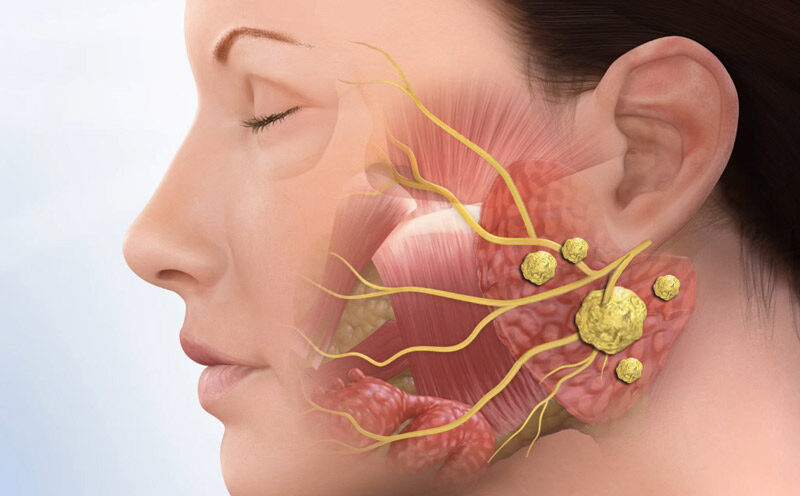Salivary gland surgery is a medical procedure that involves the removal of a salivary gland to treat conditions such as tumors, stones, and infections. While it can be an effective treatment option, many patients are concerned about the cost, recovery time, and potential complications of the surgery. In this blog, we will explore salivary gland surgery in detail, including its cost, recovery process, and possible complications. We will also compare the cost of salivary gland surgery to other similar surgeries like collapsed nasal valve surgery to help patients make an informed decision about their treatment options.
Cost
The cost of salivary gland surgery can vary depending on several factors, including the location of the surgeon, the type of procedure, and the patient’s insurance coverage. According to the Healthcare Bluebook, the average cost of a salivary gland excision is between $3,000 and $11,000. However, this cost does not include other associated costs, such as anesthesia and facility fees, which can add up quickly.
It is important to note that insurance coverage varies widely for salivary gland surgery. Some insurance plans may cover the entire cost of the procedure, while others may require the patient to pay a portion of the cost out of pocket. Patients should check with their insurance provider to determine their coverage before undergoing salivary gland surgery.
Recovery
The recovery period after salivary gland surgery can vary depending on the type of procedure and the patient’s overall health. In general, patients can expect to experience some discomfort and swelling in the affected area for a few days after surgery. Pain medication may be prescribed to help manage pain during this time.
Patients may also experience some difficulty swallowing and speaking in the days following surgery. This is normal and usually resolves on its own within a week or two. It is important for patients to stay well-hydrated during this time and to avoid strenuous physical activity for several days after surgery.
Patients should also follow their surgeon’s instructions regarding wound care and follow-up appointments. It is important to keep the surgical site clean and dry to prevent infection. Patients should also avoid smoking and drinking alcohol during the recovery period, as these activities can delay healing.
Potential Complications
As with any surgery, there are potential complications associated with salivary gland surgery. These can include bleeding, infection, and nerve damage. In rare cases, salivary gland surgery can lead to damage to the facial nerve, which can cause temporary or permanent facial paralysis.
Another potential complication of salivary gland surgery is a condition called Frey’s syndrome. This occurs when nerves that used to control sweat glands in the area of the surgery are damaged, causing sweating and flushing of the skin when eating or thinking about food.
Patients should discuss these potential complications with their surgeon before undergoing salivary gland surgery. It is important to choose a skilled and experienced surgeon to minimize the risk of complications.
Types of Salivary Gland Surgery
There are several types of salivary gland surgery, depending on the location and size of the tumor or stone. The most common types of salivary gland surgery include:
- Parotidectomy: This surgery involves removing the parotid gland, which is the largest salivary gland located in front of the ear.
- Submandibular gland removal: This surgery involves removing the submandibular gland, which is located under the jawbone.
- Sublingual gland removal: This surgery involves removing the sublingual gland, which is located under the tongue.
- Excision of minor salivary glands: This surgery involves removing one or more minor salivary glands located in the mouth or throat.
The type of surgery recommended by a doctor will depend on the location and size of the tumour or stone.
Preparing for Salivary Gland Surgery
Before undergoing salivary gland surgery, patients will need to prepare for the procedure. This may include undergoing blood tests, imaging tests, or other diagnostic procedures to assess the extent of the problem. Patients may also need to stop taking certain medications, such as blood thinners, in the days leading up to surgery.
On the day of surgery, patients will typically need to fast for several hours before the procedure. They will also need to arrange for transportation to and from the surgical facility, as they may not be able to drive themselves home after the procedure.
Following these pre-surgery instructions carefully can help to minimise the risk of complications during and after the procedure.
Rehabilitation and Aftercare
After salivary gland surgery, patients will need to take special care to promote healing and prevent complications. This may include:
- Taking pain medication as prescribed by a doctor.
- Applying ice to the surgical site to reduce swelling.
- Drinking plenty of fluids to stay well-hydrated.
- Eating soft, easy-to-swallow foods in the days following surgery.
- Avoiding strenuous physical activity for several days after the procedure.
- Following up with the surgeon for wound care and to monitor healing progress.
- Monitoring for signs of infection, such as redness, swelling, or fever.
By following these aftercare instructions, patients can help to ensure a smooth and successful recovery from salivary gland surgery.
Conclusion
Salivary gland surgery can be a highly effective treatment option for a variety of conditions, but it is not without risks and costs. Patients should carefully weigh the potential benefits and drawbacks of the surgery, including how much it cost, the recovery process, and potential complications. Collapsed nasal valve surgery, for instance, may be a viable alternative for patients with similar symptoms, but the cost of the procedure may also be a concern. Ultimately, the decision to pursue salivary gland surgery should be made in consultation with a healthcare professional, taking into account individual needs, budget, and overall health goals. By considering all available options and taking professional help, patients can decide how best to treat their condition and improve their quality of life.
